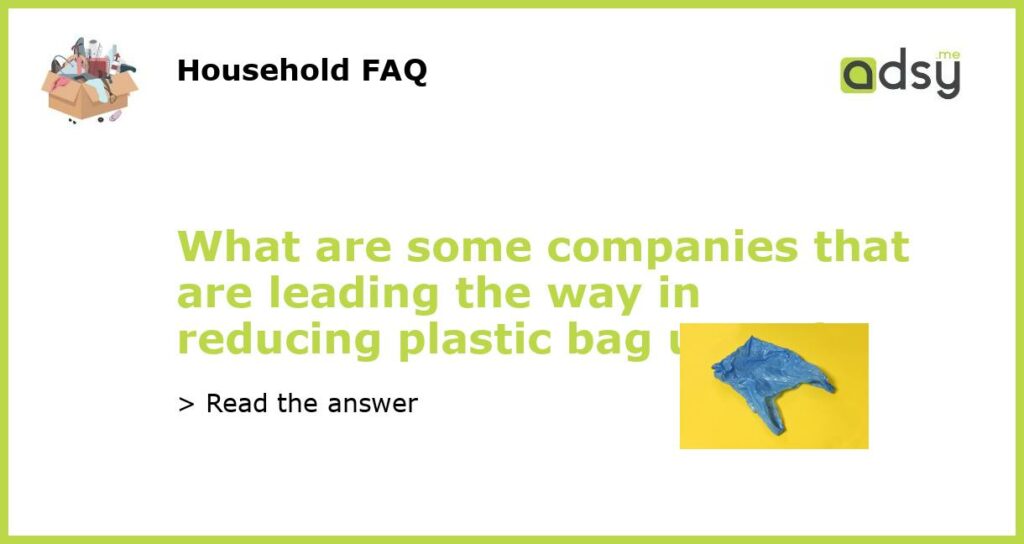Patagonia: A Sustainable Outdoor Gear Company
Patagonia is a leading company when it comes to sustainable business practices and reducing plastic bag usage. The outdoor gear company has implemented various initiatives to minimize its environmental impact, including a comprehensive strategy to eliminate plastic waste, particularly single-use plastic bags. Patagonia offers a range of reusable bags made from sustainable materials such as recycled polyester and organic cotton. These bags are not only durable and practical but also serve as an alternative to disposable plastic bags. By promoting the use of reusable bags, Patagonia is encouraging customers to reduce their reliance on single-use plastics.
IKEA: A Renewable and Recyclable Home Furnishing Retailer
IKEA, a global home furnishing retailer, is committed to minimizing its environmental impact by promoting the use of renewable and recyclable materials. As part of its sustainability initiatives, IKEA has taken significant steps to reduce plastic bag usage. The company offers reusable shopping bags made from materials such as cotton and polyester, encouraging customers to choose more sustainable options. Additionally, IKEA has also implemented a plastic bag charge in certain regions, encouraging customers to bring their own bags or purchase reusable bags in-store. By discouraging the use of disposable plastic bags, IKEA is leading the way in reducing plastic waste.
Lush: A Sustainable Cosmetic Company
Lush, a well-known cosmetic company, is dedicated to creating products that are good for both people and the planet. In line with its commitment to sustainability, Lush has taken action to reduce plastic bag usage. The company offers customers the option to purchase reusable knot wraps, which can be used as an alternative to traditional wrapping paper and plastic bags. These knot wraps are made from recycled materials and can be reused in various ways, such as storage or as a fashion accessory. By providing customers with innovative alternatives to plastic bags, Lush is proving that sustainable packaging solutions are possible in the beauty industry.
Unilever: A Global Consumer Goods Company
Unilever, one of the world’s largest consumer goods companies, recognizes the importance of reducing plastic waste and has taken steps to address the issue. The company has committed to making all of its plastic packaging reusable, recyclable, or compostable by 2025. As part of this initiative, Unilever aims to reduce its use of virgin plastic and increase the use of recycled plastic in its packaging. By implementing such measures, Unilever is making a significant contribution to reducing plastic bag usage and promoting a more circular economy.
The Kroger Co.: A Retail Grocery Chain
The Kroger Co., one of the largest retail grocery chains in the United States, is actively working to reduce plastic bag usage. The company has set a goal to eliminate the use of single-use plastic bags in its stores by 2025. To achieve this, Kroger is encouraging customers to bring their own reusable bags and offering reusable bag options at an affordable price point. Additionally, Kroger is also exploring alternative packaging solutions, such as reusable produce bags and compostable bags. By taking a proactive approach to reduce plastic waste, Kroger is setting an example for other grocery chains to follow.
In conclusion, several companies are leading the way in reducing plastic bag usage by implementing sustainable practices and providing customers with alternatives to single-use plastic bags. Companies like Patagonia, IKEA, Lush, Unilever, and The Kroger Co. are making significant efforts to minimize their environmental impact and encourage a shift towards more sustainable packaging options. By prioritizing the reduction of plastic waste, these companies are setting an example for other businesses to follow and making a positive impact on the planet.






